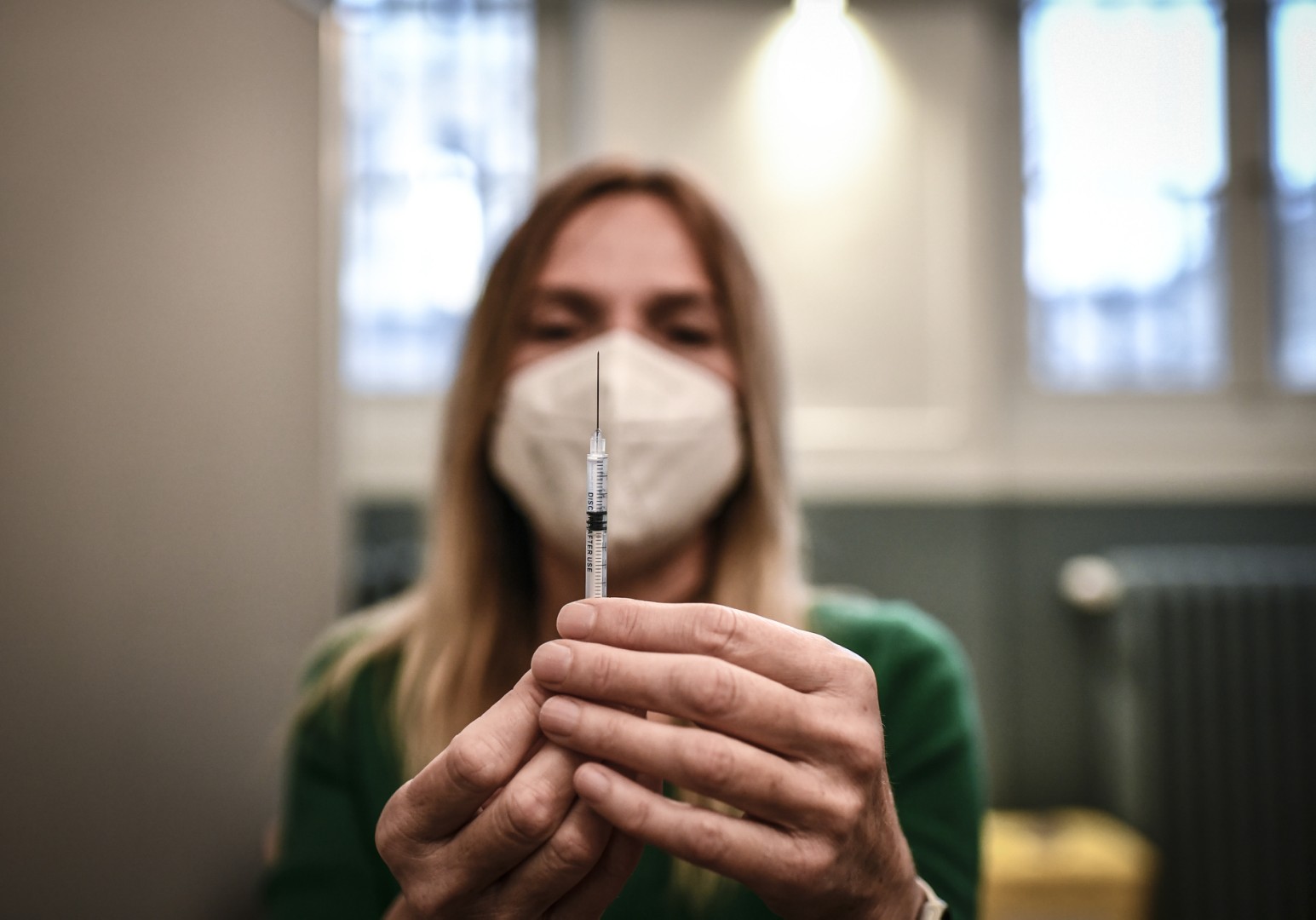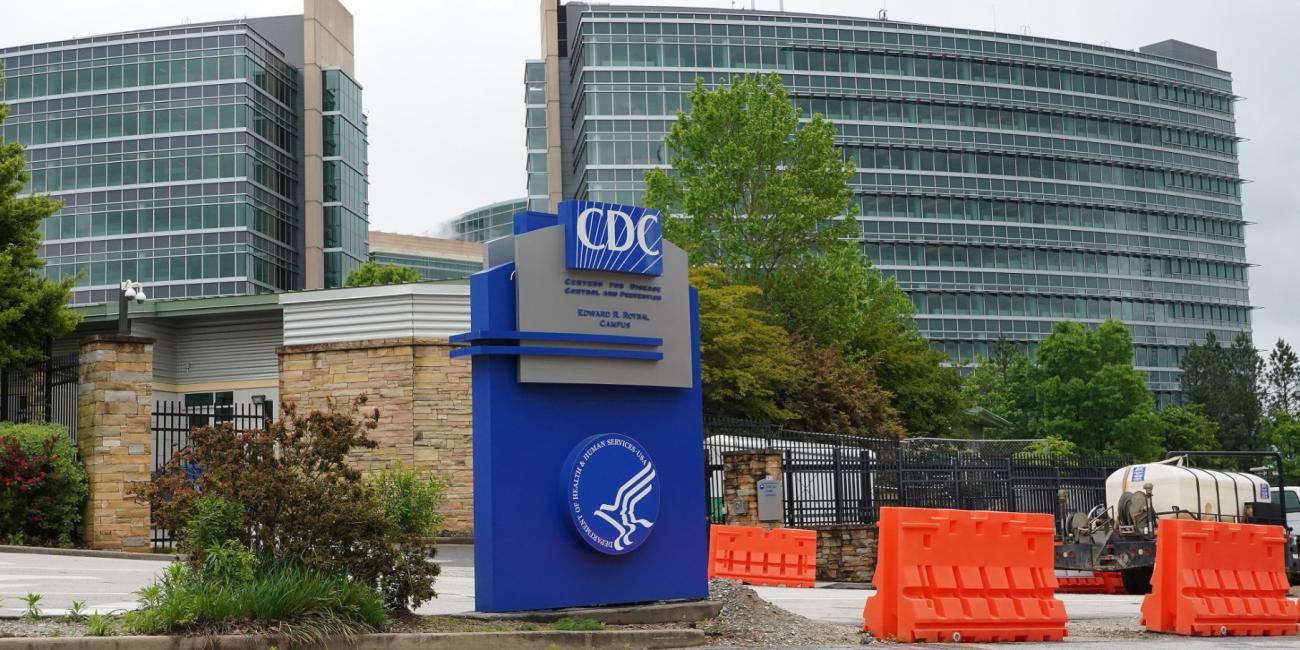
Recent study did not prove Covid-19 vaccines caused excess deaths
- This article is more than one year old.
- Published on June 20, 2024 at 21:54
- Updated on June 26, 2024 at 16:44
- 5 min read
- By Rossen BOSSEV, AFP Bulgaria, AFP Canada
- Translation and adaptation Gwen Roley
"And right when the shots start the deaths happen and then continues on. And the countries with the highest uptake of the shots have the highest death numbers," says conspiracy theorist Alex Jones in a video posted to X on June 6, 2024.
In the clip, Jones discusses a June 3 study published in BMJ Public Health titled: "Excess mortality across countries in the Western World since the Covid-19 pandemic: 'Our World in Data' estimates of January 2020 to December 2022" (archived here). The BMJ -- formerly called the British Medical Journal -- is part of the same publishing group as BMJ Public Health, according to its website (archived here).
Similar claims about the paper spread across X while jumping to Facebook and Instagram -- often referencing an article by British daily The Telegraph covering the study (archived here). The posts also circulated in other languages, including French and Bulgarian.


The posts come amid a wave of vaccine misinformation, including false claims about adverse effects, which has undercut confidence in public health efforts to fight Covid-19 and other diseases.
The New York Post also shared a link to an article on X on June 6, 2024 with the headline: "Covid vaccines may have helped fuel rise in excess deaths since pandemic: study." However, an editor's note attached to the story on its website said the text had been updated to reflect that the study did not analyze the impact of vaccination (archived here)
On that same day, the BMJ Group stated on its X account that the paper had been misreported and added that various news outlets "have claimed that this research implies a direct causal link between Covid-19 vaccination and mortality. This study does not establish any such link."
Statement in response to misreporting of BMJ Public Health @BMJPublicHealth research on excess deaths since the COVID-19 pandemic.
— BMJ Group (@bmj_company) June 6, 2024
Link: https://t.co/oe8tlcMi9Mpic.twitter.com/y2J2g3wSyu
What did the study find?
According to the paper's abstract, the Dutch researchers used figures from 47 countries as found in aggregator Our World in Data to assess excess mortality -- or the number of deaths above the anticipated amount -- between 2020 and 2022.
The study concluded that the rate of excess mortality was high in the observed countries, which included the United States, United Kingdom and Canada, during that time, despite the pandemic mitigation measures that were in place.
"This raises serious concerns. Government leaders and policymakers need to thoroughly investigate underlying causes of persistent excess mortality," the researchers wrote in their conclusion.
While the paper comments on the possibility of suspected adverse events of Covid-19 vaccines contributing to excess deaths, the text also points to infection from the virus and indirect effects of containment measures as potential underpinning factors driving the trend.
The research does not present evidence for a link between vaccination and excess mortality, with the authors pointing out that governments "may be unable to release their death data with detailed stratification by cause."
Experts criticize the paper
After the study was published, it received criticism online, including an X thread (archived here) by Jeffrey Morris, a professor of public health and preventative medicine and director of the Division of Biostatistics at the University of Pennsylvania's Perelman School of Medicine (archived here).
"This paper provides no evidence whatsoever that Covid-19 vaccines have increased mortality," he told AFP in a June 13 email. "All they do is demonstrate excess deaths did not stop in 2020 but continued in 2021-2022 'in spite of containment measures and vaccines.'"
John Ioannidis, a professor of medicine at the Stanford Prevention Research Center, said placing the burden of excess deaths on Covid-19 vaccines was "a long stretch"(archived here).
"I think that overall vaccines saved many lives in the balance: not as many as some claim, trying to paint an all-perfect story around them, but I definitely don't think that they killed more people than they saved!" he said in a June 13 email.
Publisher and hospital pull back from research
Following criticism of the study the BMJ Group said in a June 13 press release (archived here) that an expression of concern would be placed on the paper.
On June 11, the Utrecht-based Princess Máxima Center for Pediatric Oncology, listed as the affiliation for three of the study's four authors, also published a statement distancing itself from the paper (archived here).
According to the statement, the original idea of the study "was to look at the effect of Covid measures on, among other things, the mortality rate of children with cancer in low-income countries."
However, during the course of the study, the hospital said: "The focus shifted and diverted in a direction that we felt was too far from our expertise: pediatric oncology. We are not experts in epidemiology, nor do we want to give that impression."
Its statement said: "The study in no way demonstrates a link between vaccinations and excess mortality; that is explicitly not the researchers' finding. We therefore regret that this impression has been created."
Benefits outweigh risks
Some studies have estimated that Covid-19 vaccines saved millions of lives (archived here and here). Physicians have continually told AFP the shots are effective at preventing severe illness and death, outweighing the risks of possible side effects (archived here).
Researchers estimate the Covid-19 virus itself directly led to more than 7 million deaths worldwide, according to the Kaiser Family Foundation (archived here).
In Canada, the most recent government data reports that out of more than 100 million doses of the shot, 488 deaths were reported after vaccination with four of these being consistent with causal association to immunization (archived here).
"The BMJ paper gives an overall balanced discussion of many possibilities of contributing factors that are very difficult or even impossible to disentangle as to their relative contribution with these types of data," Ioannidis said. "Many of the contributing factors tend to co-exist, making their disentanglement even more difficult."
Read more of AFP's reporting on vaccine and health misinformation here.
This article was corrected throughout to specify the study was published in BMJ Public Health, which is part of the BMJ Publishing Group.June 26, 2024 This article was corrected throughout to specify the study was published in BMJ Public Health, which is part of the BMJ Publishing Group.
Copyright © AFP 2017-2026. Any commercial use of this content requires a subscription. Click here to find out more.
Is there content that you would like AFP to fact-check? Get in touch.
Contact us




